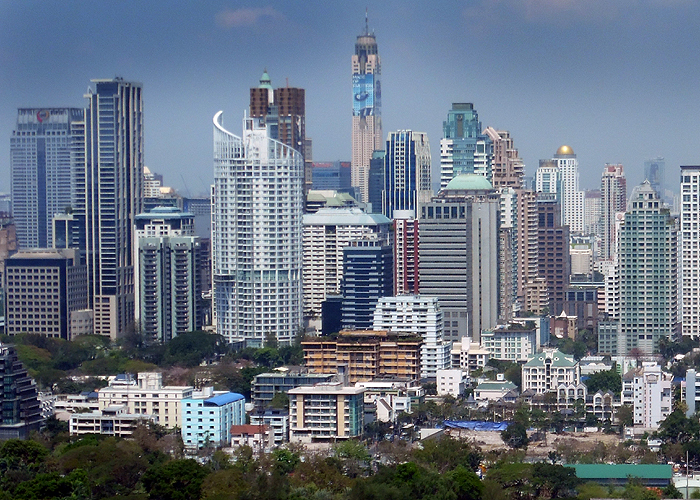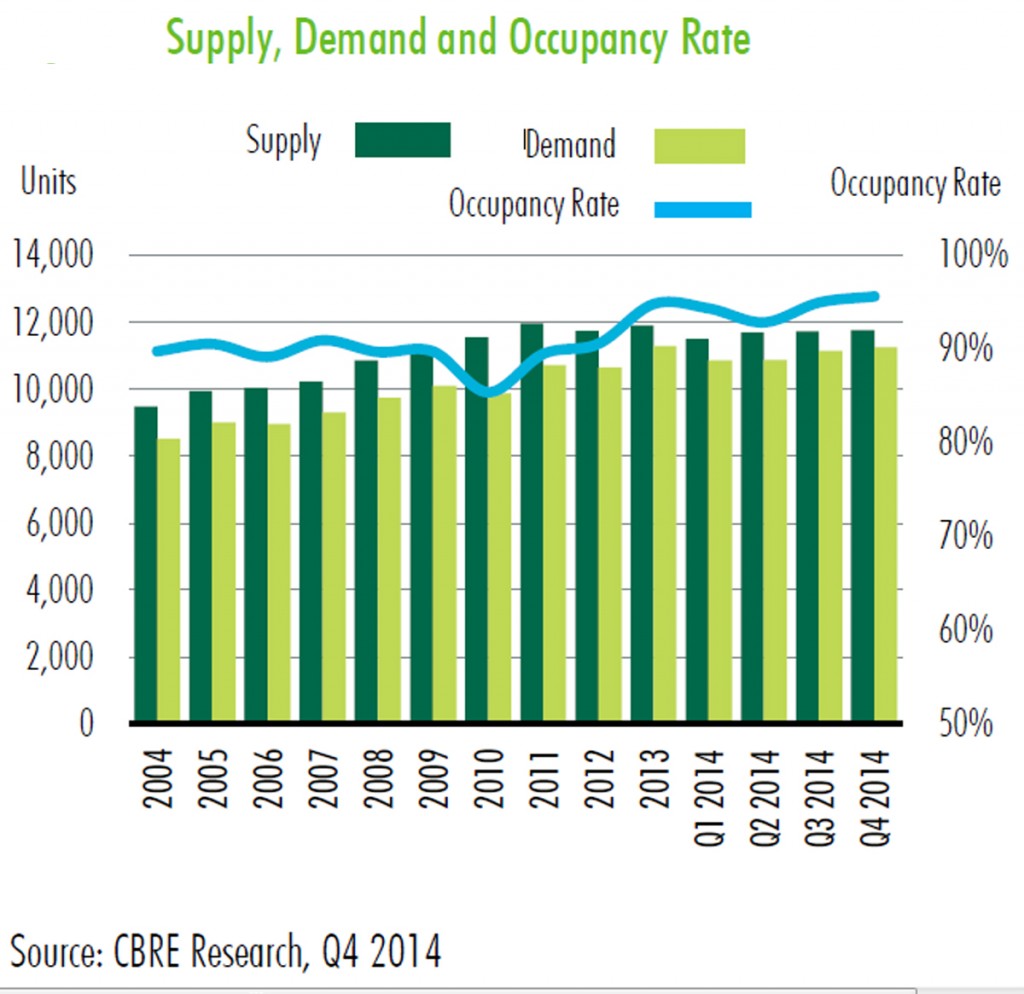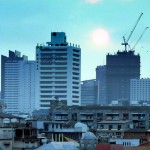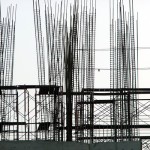Residential rental rates in Bangkok are expected to rise as demand for expatriate-standard two- and three-bedroom properties starts to outstrip supply.
In its latest research report, real estate firm CBRE noted that more than 90 percent of tenants who rent residential properties in Bangkok at prices of more than THB20,000 per month are expatriates.\
The firm said this is because most expatriates who come to work in Thailand prefer to rent rather than purchase property. They are usually only here for a few years and it is very difficult for them to borrow money to fund a property purchase – making buying less attractive.
The number of expatriates holding work permits in Bangkok increased to 77,600 in the last quarter of 2014, an increase of approximately 4 percent from the previous three-month period. This number excludes diplomats and expatriates with work permits in other provinces but actually living in Bangkok.
Typically, Bangkok expatriates prefer to live in a limited number of areas. The majority choose to live in Sukhumvit between sois 1-63 and 2-42, Sathorn and Central Lumpini.
The supply of standard expatriate apartments (single ownership buildings) has only grown slightly over the past ten years due to low yields, which makes it less attractive for developers to build new apartments. Condominium units (multi-ownership), where individual owners are buy-to-rent investors, are direct competitors of apartments in the Bangkok expatriate residential leasing market.
The number of new condominiums has grown much faster than the supply of new apartments. CBRE expects that between 30 percent and 40 percent of units in most new downtown condominiums have been sold to buy-to-rent investors.
Some 70 percent of condominium units under construction in the downtown area are one-bedroom or smaller units. However, there is strong rental demand for two- and three-bedroom units; and a staggering 75 percent of CBRE’s leasing deals are for two-bedroom or larger units.
The demand for well-decorated two- and three-bedroom units is going to increase, according to the real estate firm, provided that expatriate numbers continue to grow.
The demand for two- and three-bedroom units is starting to exceed supply, given the age and condition of older condominium buildings. As demand will exceed supply, lump sum rents that have stayed at the same levels for almost 25 years will finally increase.
As yet though, lump sum rents have not increased but occupancy is rising for two- and three-bedroom apartments and condominiums that have undergone refurbishments, and there is a waiting list for some of the best apartments.
Andrew Batt, International Group Editor of PropertyGuru Group, wrote this story. To contact him about this or other stories email andrew@propertyguru.com.sg







